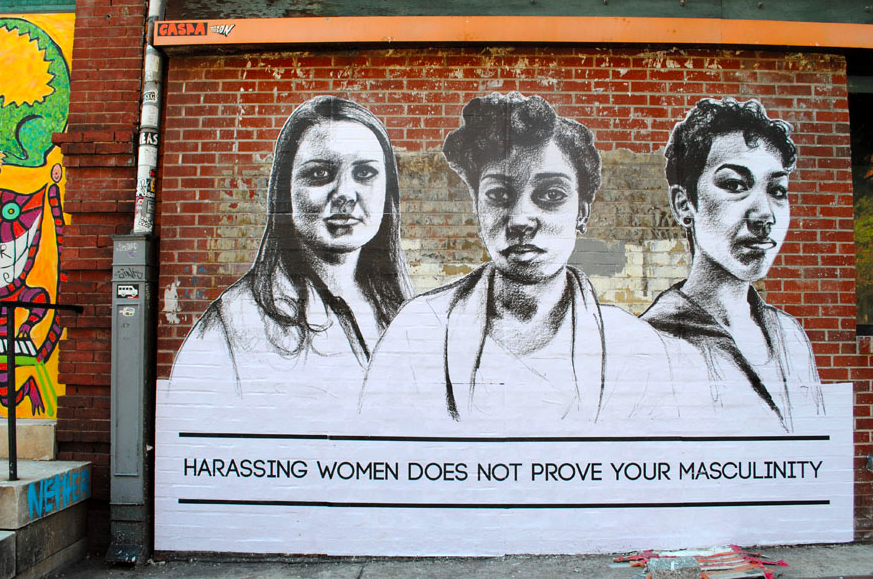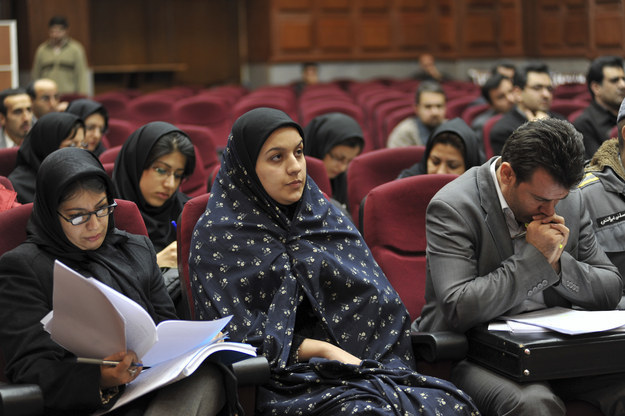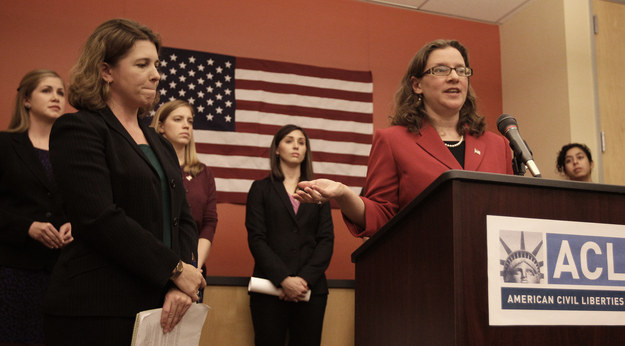1. Reject a member of the opposite sex without being in danger.

• According to Detroit police, a man shot and killed Mary Spears, 27, after she rejected his advances in October. She was a mother to three children.
• Last year, Elizabeth "Lizzi" Marriott, of Westborough, Massachusetts, was raped and killed for rejecting the sexual advances of Seth Mazzaglia.
• For rejecting a drink being bought for her by a man in South Carolina, a woman had a bowling ball thrown at her head.
• In fact, there is a Tumblr called When Women Refuse that is dedicated to documenting real-life occurrences of what happens when a woman rejects a man.
2. Legally drive a car.
selvi is the first female taxi driver in south india. She supports women's right to drive #oct26driving #Women2Drive
• In Saudi Arabia, women are banned from driving a car. Over the past two years, women have defied that ban and published videos and photos of themselves driving cars as part of the #Women2Drive campaign.
3. Play sport.

• According to local press in New Zealand earlier this year, a woman was banned from playing in a Southland-wide club rugby competition.
• It was only after national outrage that an 11-year-old football player – who was kicked off her local Catholic Youth Organisation football team because she was a girl – was allowed to play again.
• Dutee Chand, a teen from India, was banned from the Commonwealth Games and Asian Games because she had hyperandrogenism, which is the presence of high levels of testosterone in the body. She is currently fighting the ban in court.
• But it's not just women who have restrictions against playing sport: There are laws against women enjoying sport too. Iranian women are banned from entering sports stadiums. Recently, Ghoncheh Ghavami and fellow protesters were arrested for demanding to be allowed into a stadium in Tehran.
4. Walk down the street without the fear of being catcalled, harassed, or in danger.

• Whether it's walking around your neighborhood at night, with headphones in, or even just being on your own, there is always a fear of being harassed.
• Earlier this year, Stop Street Harassment commissioned a 2,000-person survey in the US that found 65% of all women had experienced street harassment: "23% of them having been sexually touched, 20% had been followed, and 9% had been forced to do something sexual."
• A survey conducted by End Violence Against Women Coalition revealed that 43% of young women in London (aged 18-34) experienced sexual harassment in public spaces in 2012. These are just a few examples of studies that reveal the true extent of street harassment.
• Meanwhile, the Stop Telling Women To Smile project is addressing gender-based street harassment with awesome posters.
5. Vote.

• In Saudi Arabia and Vatican City, women are not allowed to vote. Saudi Arabia claims that women will be able to vote in municipal elections in 2015.
• In parts of the US, reports suggest that women voters are "disproportionately affected" by parts of their state's laws, especially women of colour.
6. Wear what they want, when they want.
Take a Hijab Selfie to stand in solidarity with Aussie Muslim women who have been the subject of recent abuse #WISH
• From a burka, to a skirt that is "too short", to trousers that are "too tight", to people asking "...but what were you wearing?" to a survivor of sexual assault, restrictions and judgement made on what women wear can be seen every single day.
• Here is a recap of what women have been told not to wear in 2014.
7. Get access to sexual health that they need.
• Some studies show that only seven states in the US guarantee that women's birth control prescriptions will be filled. "When a woman walks into a pharmacy with a birth-control prescription from her doctor, she should walk out with the medication—without intimidation, delay, or harassment," the organisation states.
• Across the country, federal and state bans and restrictions on abortion are commonplace. Fake clinics run by people who are anti-abortion are also rife in the US.
• In Latin America and the Caribbean, of the 4.4 million abortions performed in the region in 2008, 95% were unsafe. In seven of the 34 countries, abortion is not permitted, and in eight others, it's allowed only to save a woman's life.
8. Get drunk or leave drinks unattended without having to be "cautious".

• Almost every piece of "advice" given to women to avoid rape or sexual assault is to "not drink so much" and "never leave your drink unattended." As Jessica Valenti writes in The Guardian: "Warnings to avoid alcohol in order to avoid being raped send a clear message to women: you can never make a mistake, or any crime committed against you will be at least partially your fault."
• Survivors of rape and sexual assault are more likely than non-victims to attempt or consider suicide.
9. Defend themselves against rape.

• Reyhaneh Jabbari from Iran was hung for killing an alleged rapist, Amnesty International reports.
• Only within the last few years was a section in the law that allowed rapists to marry their victims in order to escape punishment ended in Morocco. This was after a 16-year-old girl killed herself after being raped and forced to marry the man who had raped her.
• According to Women Under Siege, "many nations still have rape-marriage policies that force the survivor to marry her perpetrator in effect. These include Venezuela in Latin America, Indonesia in Asia, Cameroon and Chad in Africa, and Denmark and Russia in Europe."
10. Speak out against violence against women.
Earlier this year, a new law in Afghanistan that would silence victims of violence against women was implemented. Human Rights Watch says that the law change will "let batterers of women and girls off the hook".
11. Use dating apps without the fear of being sent abusive or explicit messages.
Let the Instagram account Bye Felipe remind you of what women have to face on dating apps.
12. Earn more money – and be less likely face sexism or sexual harassment – in a workplace.

• Women in the military also say that they were fired for being raped. A Pentagon study estimates the number of sexual assaults each year in the US army is close to 19,000. In a study, over two-thirds of women working in football say that they had experienced sexism in the workplace.
• Let's not forget the pay gap between men and women that means men earn considerably more than women in the workplace.
• The Everyday Sexism Project recently recapped some of the sexist scenarios women have reported experiencing at work, including being considered a "maternity risk", being mistaken for the secretary, and "having an idea ignored only to be repeated by a male colleague five minutes later to interest and applause".
